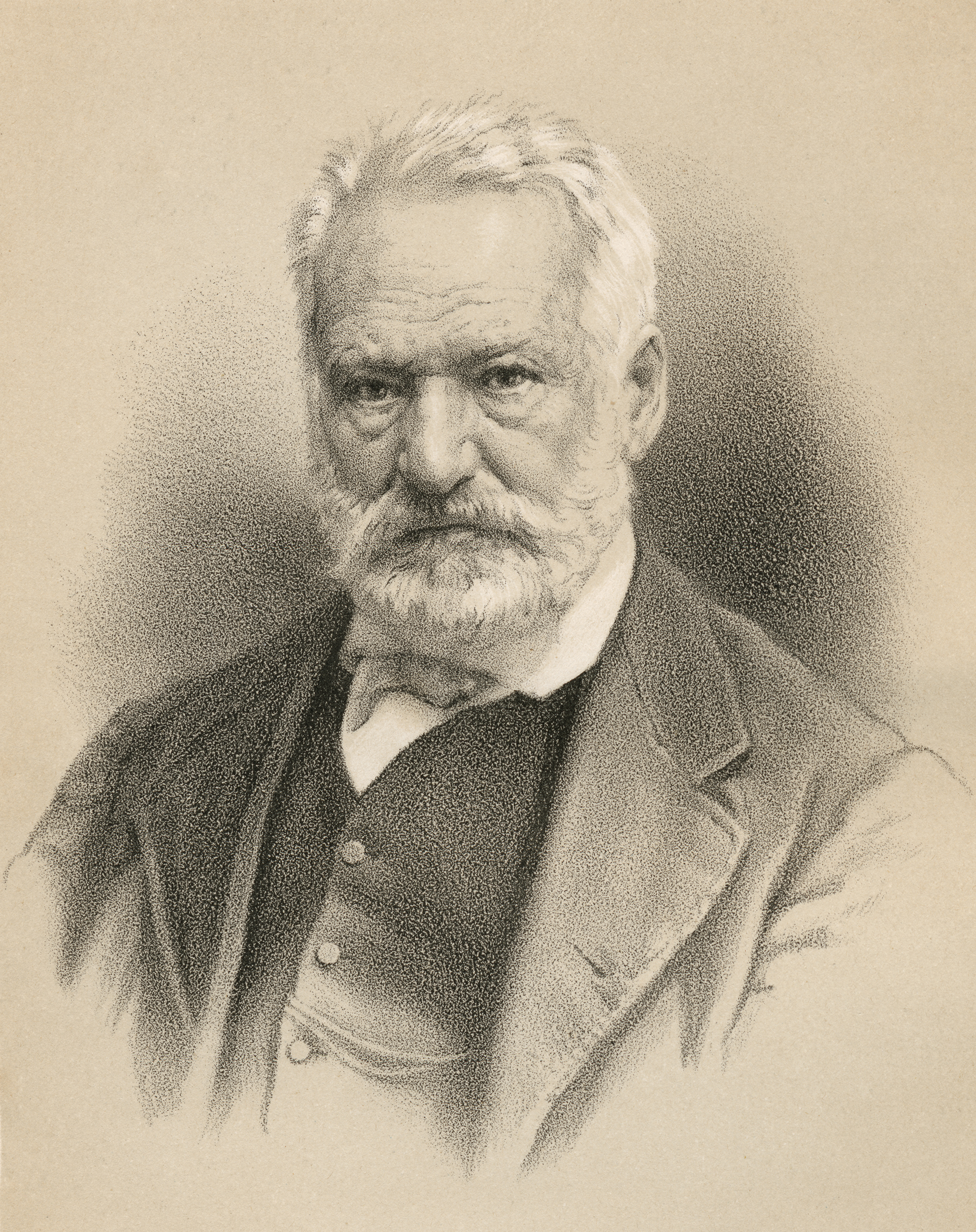Hugo, Victor (1802-1885), a French author, led the Romantic movement in French literature. His writings reveal his love of liberty, his sympathy with the suffering of ordinary people, and his understanding of the French language’s expressive potential. 
Early life.
Victor-Marie Hugo was born on Feb. 26, 1802, in Besançon. At age 17, Hugo and his brothers founded a journal called The Literary Conservative. In 1822, he married Adèle Foucher and published Odes and Various Poems, his first book of verse. These poems were written in a classical style and many marked him as a supporter of the Bourbon monarchy. Hugo soon began frequenting a circle of young Romantic writers. With the appearance of Odes and Ballads (1826) and The Orientals (1829), he came into his own as a Romantic poet.
In the preface to his historical play Cromwell, published in 1827, Hugo called for a break with the classical literary rules that had governed playwriting. This preface became a major document in Romantic aesthetic theory. The premiere of his verse drama Hernani in 1830 sparked a revolution in French theater and established Hugo as the undisputed leader of the French Romantic movement. In the following years, he wrote several plays, including The King Is Amused (1832) and Ruy Blas (1838). His novel The Hunchback of Notre Dame (1831) widened his fame. He also published a series of successful books of poetry, including Leaves of Autumn (1831), Songs of Twilight (1835), Inner Voices (1837), and Rays and Shadows (1840).
Political activity.
During the 1840’s, Hugo’s creative writing diminished for a variety of reasons. In 1843, his play The Burgraves failed dismally. That same year, his oldest daughter, whom he adored, drowned with her husband. In addition, Hugo had developed political ambitions, which soon began to occupy his time.
By the time the Revolution of 1848 established the Second Republic in France, Hugo’s political sympathies had shifted from monarchism to republicanism. He was elected to the new National Assembly. There he spoke for the expansion of voting rights, free education, and freedom of the press. At first, Hugo supported Louis Napoleon, president of the republic. But he opposed Louis when he saw that the president was becoming a tyrant.
Exile and return.
In December 1851, Louis Napoleon overthrew the republic. He made himself dictator with the title Emperor Napoleon III. Hugo went into exile for almost 20 years. He lived first in Belgium and then on the island of Jersey in the English Channel. From 1855 to 1870, he lived on the channel island of Guernsey. In 1853, Hugo published The Chastisements, a collection of satirical poems that denounced Napoleon III for destroying the Second Republic. In 1859, he rejected an opportunity to return to France. He declared that he would return only with the return of liberty.
While in exile, Hugo published much of his finest work. The Contemplations (1856) is a spiritual autobiography that recorded Hugo’s development into a political leader and visionary poet. It contains some of his best lyric poetry. The Legend of the Centuries (1859, new sections added in 1877 and 1883) is a masterpiece of epic poetry. Les Misérables appeared in 1862.
Hugo became a symbol of freedom to French people during his exile. After the overthrow of Napoleon III in 1870, Hugo returned to France in triumph. He spent his final years celebrated by his fellow citizens as a champion of democracy and of the common people. He died on May 22, 1885.
His works.
During his life, Hugo gained his greatest popularity for his plays. In Britain and the United States, he became known chiefly as a novelist. The French today honor him especially for his poetry.
Throughout his life, Hugo composed epic, lyric, and satirical poetry. He often combined these types into individual collections or even single poems. The Chastisements includes elegies, fragments of epics, odes, and songs. Many poems in The Contemplations produce powerful visionary effects through the unusual treatment of metaphor, diction, and sound. The Legend of the Centuries traces humanity’s historical and spiritual development from the Creation to the 1800’s and into the future. Hugo ended the work by predicting a human destiny of continual material and moral progress.
In his plays, Hugo used many devices of melodrama, including complicated plots, multiple change of scenes, and intense expression of emotion. However, the plays rise above much popular theater of the time, particularly in their experimentation with the stage’s visual and verbal potential and their moral and political message.
Hugo’s novels appeal to many people because of their vivid re-creations of history and their treatment of moral issues through the actions of simple but unforgettable characters. The Hunchback of Notre Dame established Hugo as a master of the historical novel. The story takes place during the 1400’s in Paris. It centers on Quasimodo, a deformed bell ringer, and on the Cathedral of Notre Dame itself. The novel Ninety-Three (1874) concerns the moral dilemmas raised by events of the French Revolution. Les Misérables is set in the France of Hugo’s day. The hero, an escaped convict named Jean Valjean, struggles to lead an honest, useful life despite the prejudices of a cruel society. The novel reflects Hugo’s faith in the individual’s power of self-determination against overwhelming odds.
Hugo’s reputation was challenged after his death by critics who accused him of expressing shallow ideas and having an overly instructive and sentimental style. Today, Hugo’s works have found renewed interest because of his imaginative treatment of theme and innovative use of language and literary forms.
